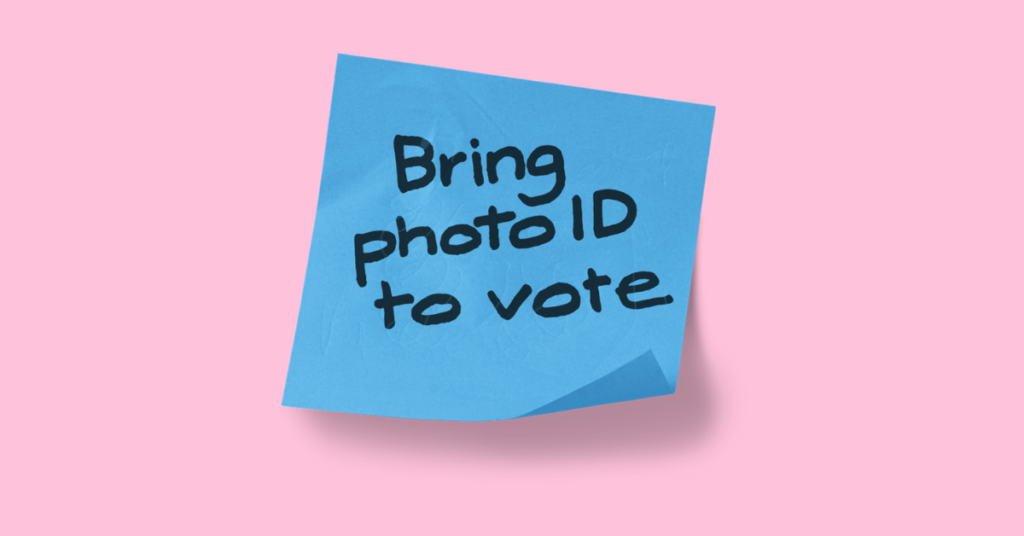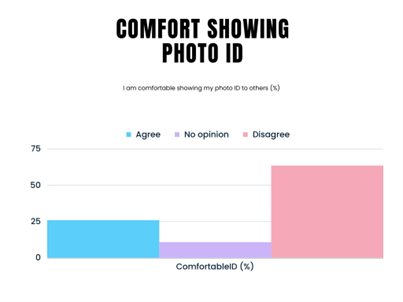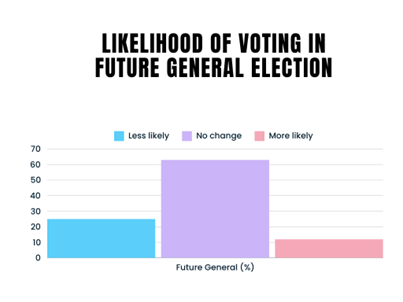
By Dr Ash Kayte Stokoe, Department of Political Science and International Studies and Dr Kit Colliver, York Law School
On July 04, the UK will hold the first general election where everyone will be required to bring photo ID to vote in person.
The new rules, brought in by the Elections Act 2022, represent a significant change in the British electoral system. Previously required only in Northern Ireland, requirements to bring photo ID to vote in local elections in England and Wales in May 2023 and May 2024 have caused confusion and controversy as some of the electorate have been turned away. This has affected some high-profile figures including ex-Prime Minster Boris Johnson, whose government introduced the new rules.
Soon after the voter ID rules were announced, we started to see evidence that they could particularly impact trans* people. Research by Stonewall and the LGBT Foundation found that “Nearly a quarter of trans respondents (24%) and nearly one in five non-binary respondents (19%) said they do not own usable photo ID, compared to 3% of non-trans respondents”.
Concerns about the impact of voter ID on LGBTQ* people are not new. In the US, evidence shows that although LGBTQ* people are highly engaged in politics, they also face community-specific barriers to voting. In particular, trans* people can have difficulty obtaining ID that reflects their gender identity and expression. This reduces their likelihood of voting: trans* people have been found almost 40% less likely to register to vote if they do not have ID that matches their identity and expression.
Our study of trans* people’s experiences of voter ID in England, Scotland and Wales demonstrates that it has created similar barriers to political participation with government guidelines stating that your photo ID must ‘look like you’. Participants reported dysphoric responses to ‘outdated’ ID that does not reflect their gender identity; anxiety about potential misgendering or deadnaming when presenting ID to vote; and fears of direct challenge or conflict if their ID is questioned. Only 26% of participants said they would feel comfortable showing their photo ID and 25% reported they were less likely to vote in a future general election.


Our evidence shows that voter ID rules have created both administrative and psychological barriers to voting for trans* people in the UK. We submitted evidence to the House of Lords Constitution Committee inquiry into Voter ID recommending that:
- Voter Authority Certificates need to be better advertised. People need to know what they are and how to apply for one. In particular, trans* voters will benefit from public awareness campaigns that make it clear that VACs don’t include a gender marker.
- The public also needs to know more about how Voter ID is checked. Trans* people need to know polling clerks have received training about sensitive handling of ID documents. They must be reassured that they will be treated with dignity and respect if there are any concerns about their photo ID.
The government could also improve trans* people’s access to voter ID by reducing the costs and complexity of updating photo ID.
But whilst these changes would improve things, they might not be enough. Our research participants were highly anxious about the prospect of public scrutiny. Some trans* people are likely to be put off voting for as long as photo ID rules are in place. Ultimately, we think the next government should consider scrapping voter ID rules: the evidence is clear that they are both unnecessary and contribute to the disenfranchisement of already marginalised groups.
If you are eligible to vote in UK general elections, make sure you are registered to vote before midnight Tuesday 18 June. You can check if you are registered through your local council website.
Most people in the UK vote in person at a polling station. To do this, you now need to bring photo ID that is a good likeness of you, and your name on the ID needs to match your name on the electoral register.
- If you’ve recently changed the name on your passport or driving license, check that you have also changed your name on the electoral register. You can use the government’s Register to Vote service to update your details – you’ll need to do this by midnight Tuesday 19 June.
- If you don’t have photo ID that is a good likeness, apply for a Voter Authority Certificate by 5pm on Wednesday 26 June. You will need to provide a recent digital photo of yourself and your National Insurance Number. Voter Authority Certificates do not contain a gender marker.
If you are in the process of transitioning and don’t want to apply for new photo ID at this time, or you find it difficult to attend your polling station in person, you may prefer to apply for a postal vote. You must do this before 5pm on Wednesday 19 June.
- Find out more about Dr Ash Kayte Stokoe
- Find out more about Dr Kit Colliver
- Back to Social Sciences Birmingham
The views and opinions expressed in this article are those of the author and do not necessarily reflect the official policy or position of the University of Birmingham.
